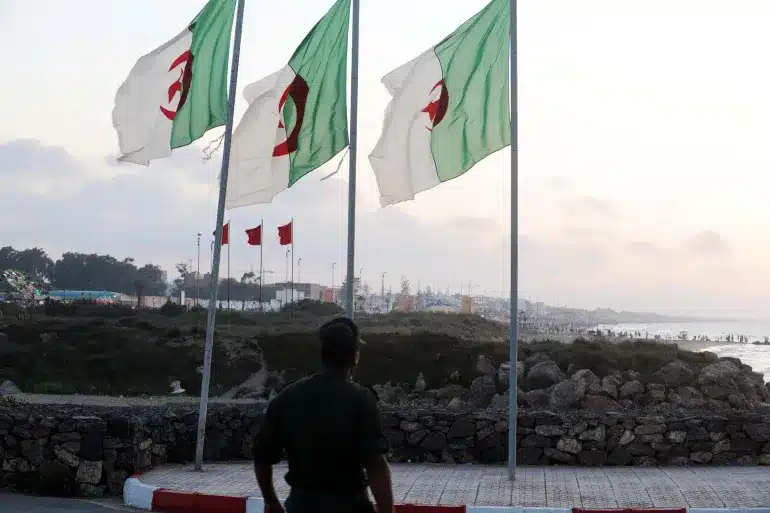France’s Foreign Minister Stéphane Sejourne, on a mission to Morocco aimed at easing strained relations, reaffirmed French support for Morocco’s autonomy plan concerning the disputed Western Sahara on Monday.
The Western Sahara, a former Spanish colony, is predominantly under Moroccan control but claimed by the Algeria-backed Polisario Front, which in 2020 declared a “self-defense war” and seeks the territory’s independence. Recognized as a “non-self-governing territory” by the United Nations, the status of Western Sahara remains contentious.
“This is an existential issue for Morocco. We know it,” Sejourne emphasized during a press conference held alongside his Moroccan counterpart, Nasser Bourita. Sejourne reiterated France’s unwavering support for Morocco’s autonomy plan, which advocates for limited autonomy for the vast desert region rich in phosphates and fisheries.
During his interaction with journalists, Sejourne expressed his desire to bolster Moroccan efforts in developing the region. He highlighted Morocco’s significant investments in various development projects aimed at benefiting the local population, including initiatives in renewable energies, tourism, and the sustainable utilization of ocean resources.
The visit by the French foreign minister follows a series of diplomatic tensions between Rabat and Paris, the former colonial power, which hosts a substantial Moroccan diaspora. Moroccan sentiments were particularly inflamed by President Emmanuel Macron’s pursuit of closer ties with Algeria.
Sejourne, in an attempt to foster a long-term partnership, proposed a 30-year plan with Morocco focusing on renewable energies, vocational training, and industrial development. Bourita, Morocco’s foreign minister, underscored that “France is a distinguished partner of Morocco on the political, economic, and humanitarian fronts.”
Meanwhile, the Polisario Front continues to demand a UN-supervised referendum on self-determination, a provision agreed upon in a 1991 ceasefire agreement following a 15-year conflict between the Front and Morocco. Despite the agreement, the referendum has yet to materialize.
In late 2020, former US President Donald Trump recognised Moroccan sovereignty over Western Sahara in exchange for Rabat’s normalization of relations with Israel. Subsequently, Morocco has intensified its diplomatic efforts to garner support from other nations.
The diplomatic landscape surrounding Western Sahara remains complex and sensitive. The competing claims of Morocco and the Polisario Front, backed by Algeria, continue to fuel tensions in the region. France’s reaffirmation of support for Morocco’s autonomy plan underscores its commitment to stability in North Africa.
The proposed 30-year partnership between France and Morocco reflects a strategic vision aimed at fostering sustainable development and cooperation in key sectors. Renewable energies, vocational training, and industrial development are pivotal areas that can drive economic growth and create opportunities for the region’s inhabitants.
Morocco’s proactive approach to development in Western Sahara underscores its commitment to addressing socio-economic challenges and improving the livelihoods of local communities. By investing in renewable energies and harnessing the potential of its natural resources, Morocco aims to unlock the region’s economic potential while promoting environmental sustainability.
The unresolved status of Western Sahara remains a significant obstacle to peace and stability in the region. The failure to hold the promised referendum on self-determination prolongs the uncertainty and hampers efforts to find a lasting solution to the conflict.
As diplomatic dynamics evolve, the need for constructive dialogue and diplomatic engagement becomes increasingly apparent. France’s continued support for Morocco’s autonomy plan sends a clear signal of solidarity and commitment to finding a peaceful resolution to the Western Sahara issue.
In conclusion, the diplomatic overtures between France and Morocco signify a concerted effort to strengthen bilateral ties and address shared challenges. The proposed partnership holds promise for advancing mutual interests and promoting regional stability in North Africa. However, the path to lasting peace in Western Sahara requires sustained diplomatic efforts and a genuine commitment to dialogue and compromise from all parties involved.
Image credit: Farouk Batiche/AFP



















